Мистецтво діалогу: три дні навчання, які об'єднали міста
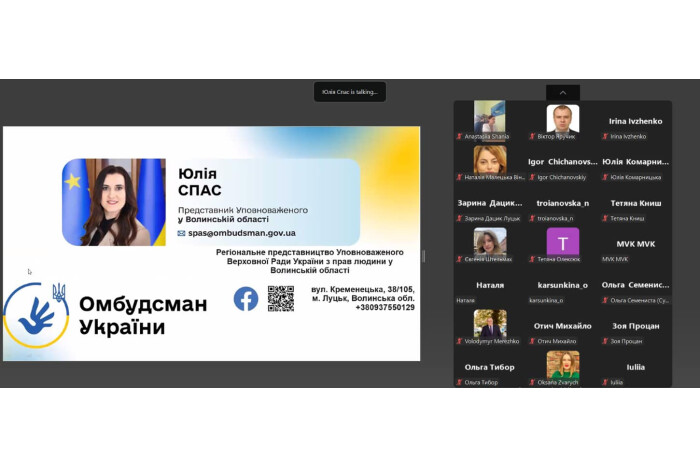
Протягом трьох днів у Луцьку тривав навчальний онлайн модуль «Мистецтво діалогу: базові навички медіації для міжкультурних громад», який об’єднав понад 40 учасників із шести інтеркультурних міст України - Луцька, Павлограда, Мелітополя, Сум, Одеси та Вінниці.
Захід став майданчиком для спільного навчання, відкритого діалогу й практичного напрацювання навичок, необхідних для роботи в громадах, що постійно змінюються та зростають у своєму різноманітті.
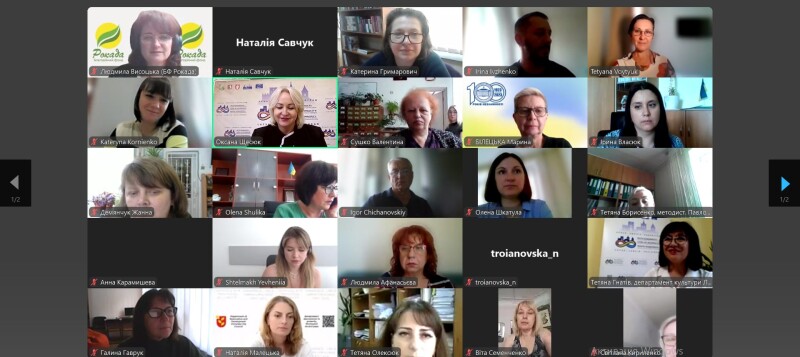
Цей модуль — частина серії освітніх подій «Луцьк багатоголосий: мова, історія і традиції спільнот Луцька», організованих у межах проєкту «Міста взаємності: інтеграція через міжкультурний діалог», що реалізується департаментом культури Луцької міської ради у партнерстві з містами Люблін (Польща) та Павлоград (Україна) за підтримки Програми Ради Європи «Інтеркультурні міста» (ICC) та фінансується Радою Європи.
Своїми знаннями і досвідом ділилися тренерки - Юлія Спас, представниця Уповноваженого Верховної Ради України з прав людини у Волинській області, Оксана Щесюк, адвокатка, медіаторка, тренерка, Світлана Максим’юк, юристка, медіаторка, громадська діячка та Тетяна Войтюк, медіаторка, проєктна менеджерка, тренерка з медіації, голова ГО «Твори Добропілля» та членкиня правління ГО «Асоціація сімейних медіаторів України».
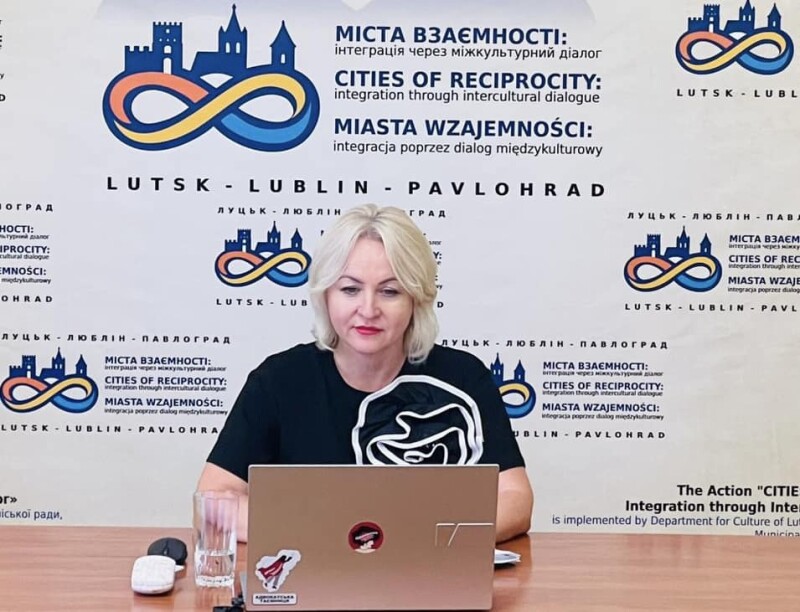
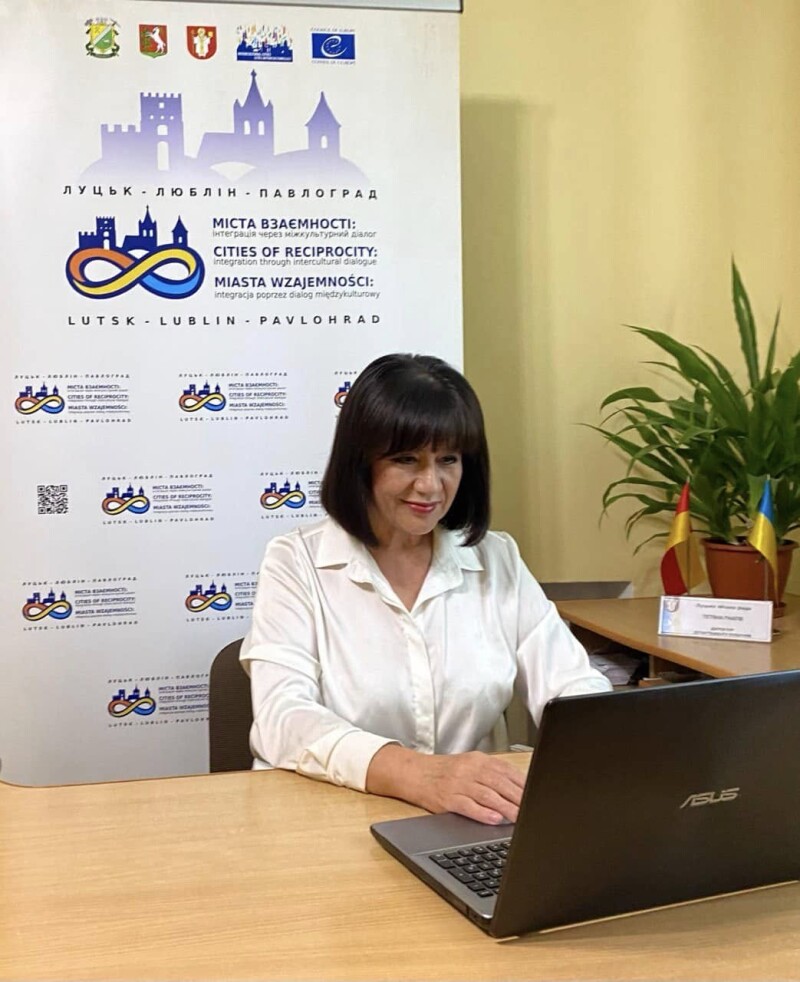
Перший день був присвячений розумінню конфлікту, його причин та ролі медіації у громадах.
Другий день — роботі з емоціями, активному слуханню, навичкам емпатії та ненасильницької комунікації.
Третій день — міжкультурній медіації, викликам і підходам до роботи в різних культурних контекстах.
Особливо цінними стали практичні вправи з розбору кейсів із досвіду учасників, які дозволили глибше зрозуміти виклики міжкультурної взаємодії та отримати фахову підтримку й зворотний зв’язок.
У зверненні до учасників заходу керівниця проєкту, директорка департаменту культури Луцької міської ради, локальна координаторка Програми Ради Європи «Інтеркультурні міста» Тетяна ГНАТІВ наголосила, що найголовніше - підтримка один одного в час випробувань, спільність у побудові громад, де діалог і взаємність стають не лише інструментами порозуміння, а основою довіри, співпраці та стійкості в умовах змін. Т.Гнатів також подякувала тренерам, усім учасникам за відкритість і готовність творити культуру діалогу у своїх громадах!
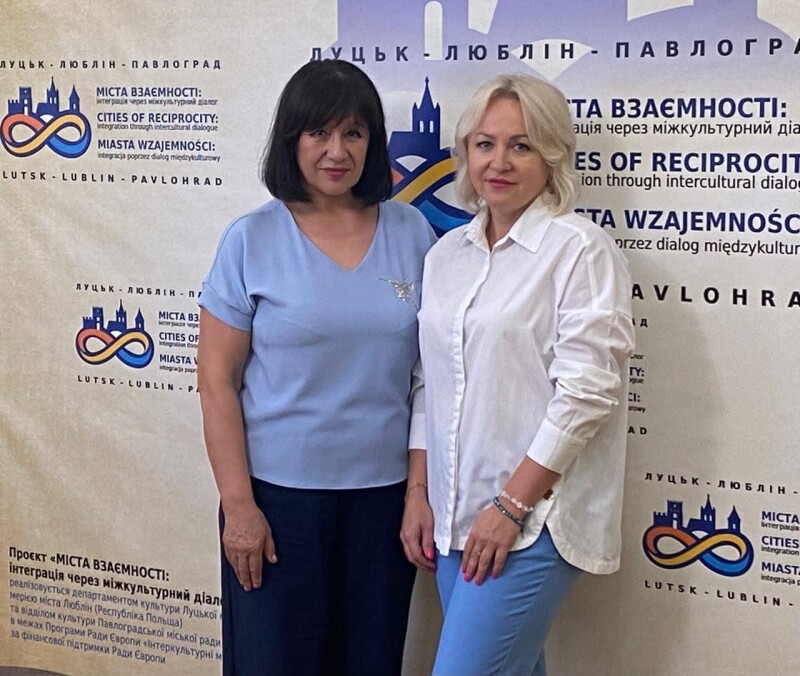
Цей допис було підготовлено за фінансової підтримки Ради Європи. Погляди, висловлені в ньому, жодним чином не можуть тлумачитися як такі, що відображають офіційну позицію Ради Європи.
The Art of Dialogue: Three Days of Learning that United Cities
Over three days, the city of Lutsk hosted the online training module “The Art of Dialogue: Basic Mediation Skills for Intercultural Communities,” which brought together more than 40 participants from six Intercultural Cities of Ukraine — Lutsk, Pavlohrad, Melitopol, Sumy, Odesa, and Vinnytsia.
The module became a platform for shared learning, open dialogue, and hands-on practice of skills essential for working in communities that are constantly evolving and growing in their diversity.
This training was part of the educational series “Polyphonic Lutsk: Language, History, and Traditions of Lutsk’s Communities,” organized within the framework of the project “Cities of Reciprocity: Integration through Intercultural Dialogue,” implemented by the Department for Culture of Lutsk City Council in partnership with Lublin (Poland) and Pavlohrad (Ukraine), with the support of the Council of Europe’s Intercultural Cities (ICC) Programme and with funding from the Council of Europe.
Our team of trainers generously shared their knowledge and expertise: Yuliia Spas, Representative of the Ukrainian Parliament Commissioner for Human Rights in the Volyn region; Oksana Shchesiuk, lawyer, mediator, trainer; Svitlana Maksymiuk, lawyer, mediator, civic activist; Tetiana Voitiuk, mediator, project manager, trainer, head of the NGO “Tvory Dobropillia” and board member of the Ukrainian Association of Family Mediators.
The module’s agenda included:
Day 1 — understanding the nature of conflict, its causes, and the role of mediation in community settings.
Day 2 — working with emotions, active listening, empathy-building skills, and non-violent communication techniques.
Day 3 — intercultural mediation, its challenges, and approaches for working in diverse cultural contexts.
One of the most valuable components was the practical analysis of real-life cases shared by participants, which offered deeper insights into the challenges of intercultural interaction, as well as professional support and peer feedback.
In her closing remarks, Tetiana HNATIV — project leader, Head of the Department for Culture of Lutsk City Council, and local coordinator of the Council of Europe’s Intercultural Cities Programme — emphasized the importance of supporting each other in times of challenge and working together to build communities where dialogue and reciprocity become not just tools for understanding but the foundation of trust, cooperation, and resilience in the face of change. She expressed her gratitude to the trainers and participants for their openness and readiness to foster a culture of dialogue within their communities.
This post was prepared with the financial support of the Council of Europe. The views expressed herein can in no way be taken to reflect the official position of the Council of Europe.
Департамент культури міської ради
